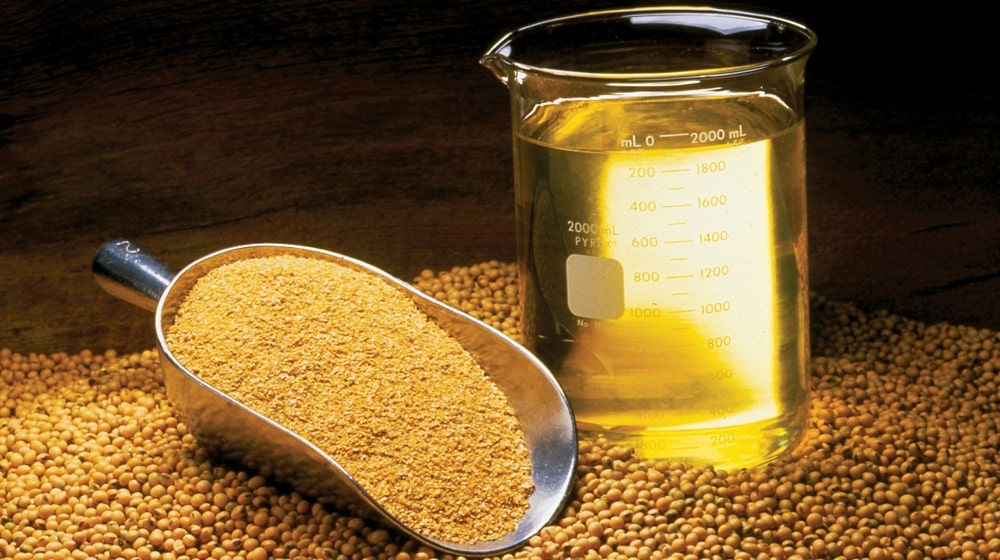The government has chalked out an implementation plan for the National Oilseed Policy under which 60 percent of the total requirement of edible oils would be met locally by 2033-34.
Highly-placed officials told ProPakistani that a new National Oilseed Policy has been drafted with ambitious targets. The said policy will be implemented after seeking comments from stakeholders.
A huge target of making the country self-sufficient for 60 percent of the total requirement of edible oils has been set to be achieved by 2033-34 under the National Oilseed Policy. In monetary terms, there would be a substitution of $7.668 billion. This is a huge amount if we compare it with our current financial crises. To meet these targets bold decisions and firm commitments are required.
According to the implementation plan, the prerequisites of the National Oilseed Policy have been finalized. They include:
(i) Profitable Intervention Price (PIP): The announcement of Profitable Intervention Price (PIP) for Sunflower, Canola/ Rapeseed & Mustard, and Sesame equal to 1-1/2 times the cost of production of these crops to encourage growers.
(ii) Regulatory Duty (RD): The commitment to impose a regulatory duty on imports of edible oils and oilseeds if required to ensure PIP. This would not be a unique intervention. The government already imposes RDs on imports of wheat (60 percent), sugar (40 percent), and maize (30 percent) to protect local growers.
The quota restrictions or other non-tariff measures to protect local oilseed growers may not be supported because these will increase the prices of ghee and cooking oils which will affect consumers and there wouldn’t be any revenue generation for target subsidy to vulnerable populations.
(iii) Uninterrupted Provision of Financial Resources for National Oilseed Policy: The rates of Cess which are currently Rs. 50 per ton on imported edible oils and 10 percent of the custom duty on oilseeds (Cess on edible oils was levied in 1994 and on oilseeds in 2000) may be raised to Rs. 1000 per ton and 20 percent of the custom duty, respectively. Around Rs. 5.5 billion annually will be available in the Cess fund. The Cess fund balance with the Federal Board of Revenue (FBR) may also be transferred to POD’s Cess fund.
Around Rs. 15 billion would be available after the transfer of the Cess fund from FBR and the re-appropriation of NOEP funds.
The new policy has also defined the role of the Pakistan Oilseed Department (POD) in the implementation of the National Oilseed Policy, the POD will be responsible to coordinate with Provincial and Federal Departments to orchestrate all the activities/actions mentioned in the implementation plan for execution of National Oilseed Policy through Provinces.
This would be a very challenging task to accomplish with the current exhausted structure of POD. There would be only two Technical Officers of BS-18 after June 2023 in POD to run the affairs of POD. All 24 posts of BS-17, 13 posts of BS-18, 4 posts of BS-19, 1 post of BS-20, and 1 post of BS-21 of technical cadres are vacant.
A reasonable strengthening of technical officers in POD would be inevitable for the successful implementation of the National Oilseed Policy. It is therefore important to strengthen POD by filling at least 10 posts of BS-17, 4 posts of BS-18, 4 posts of BS-19, 1 post of BS-20, and 1 post of BS-21 through directed recruitment on a regular basis, promotions/accelerated promotions, and contract basis.
Under the National Oilseed Policy, a high power committee for implementation of National Oilseed Policy may be constituted with the following composition:
(i) Minister for National Food Security &Research Chairman Committee ii. Provincial Agriculture Ministers Member iii. Secretary, NFS&R Member iv. Secretary, MoIP Member v. Secretary, M/o Commerce Member vi. Chairman, FBR Member vii. Provincial Agriculture Secretaries Member viii. Chairman, PARC Member ix. Food Security Commissioner-I Member x. Managing Director, POD Member/Secretary.
This committee will be empowered to decide all matters related to the implementation of the National Oilseed Policy for achievements of its goal/target, enumerated:
- Announcement of the PIP
- Imposition of RD,
- Levy of /changes in Cess on imports of oilseeds and edible oils,
- Amends and fix National Oilseed Policy goals,
- Introduction of new interventions,
- Approval of budget exceeding Rs. 500 million for any intervention/proposal to promote oilseeds, recruitment of staff/officers,
- Purchases of vehicle/motorcycles for field force, etc.
There will be two sub-committees under High Power Committee.






















